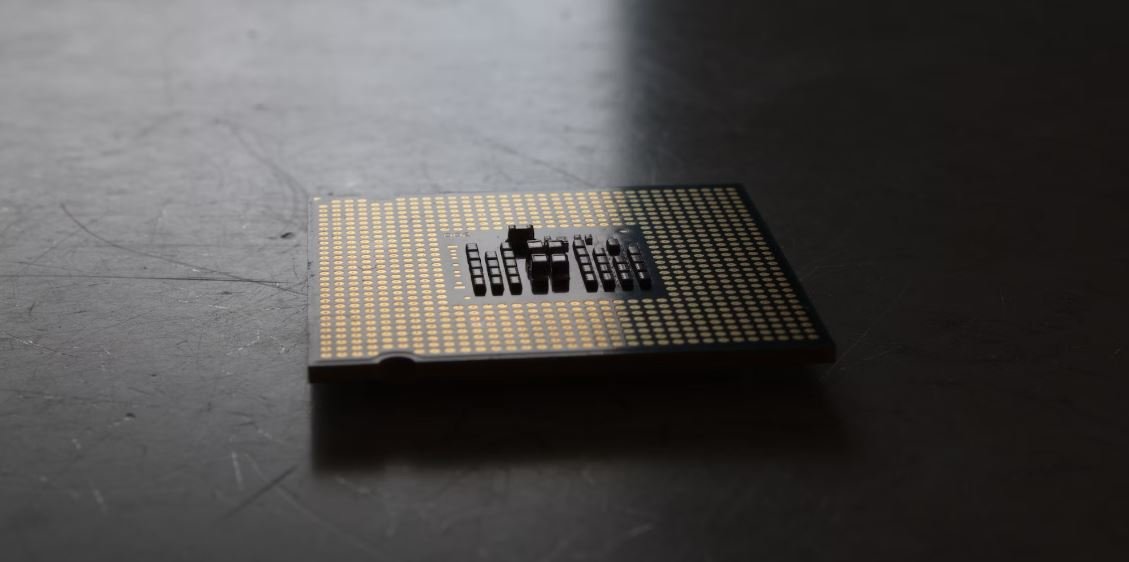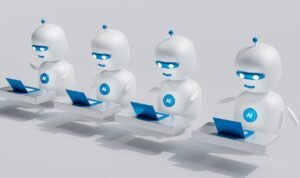AI vs. Algorithm
Artificial Intelligence (AI) and algorithms are often used interchangeably, but they are not the same thing. While both play crucial roles in technology and data processing, understanding the differences between AI and algorithms is essential. In this article, we will explore the distinctions between AI and algorithms, their applications, and the future implications of these technologies.
Key Takeaways:
- AI and algorithms are distinct technologies with different capabilities and applications.
- Algorithms are a set of instructions used to solve specific problems or perform tasks, while AI refers to systems that can simulate human intelligence.
- The use of AI and algorithms is prevalent in various industries, including healthcare, finance, and transportation.
- Both AI and algorithms have the potential to significantly impact our daily lives in the future.
Distinguishing AI and Algorithms
Algorithms, at their core, are a set of well-defined instructions and rules designed to solve specific problems or complete tasks. They are deterministic and rely on predefined rules, data inputs, and logical steps to produce an output. Algorithms are commonly used in programming and computational tasks to process data or solve mathematical equations.
Did you know that algorithms have been used for centuries, even before the existence of computers, to solve complex mathematical problems?
On the other hand, AI is an umbrella term that encompasses a range of technologies and techniques that aim to simulate human intelligence. AI systems can analyze and interpret data, learn from patterns, and make decisions or predictions based on this analysis. Unlike algorithms, AI systems can adapt and improve their performance over time by learning from new data or experiences.
AI has the ability to learn from large datasets and complex patterns, something that traditional algorithms struggle with.
Applications of AI and Algorithms
Both AI and algorithms have extensive application in various industries and fields. Algorithms are commonly used for tasks such as data processing, pattern recognition, optimization, and decision-making. For example, search engine algorithms enable us to find relevant information quickly, while recommendation algorithms power personalized product suggestions on e-commerce platforms.
- In the healthcare industry, AI is used for medical diagnosis, drug discovery, and patient monitoring, improving the accuracy and efficiency of these processes.
- In finance, algorithms are extensively used for quantitative trading, risk assessment, credit scoring, and fraud detection.
- Transportation systems utilize algorithms for optimizing routes, managing traffic flow, and predicting travel times.
| AI | Algorithm |
|---|---|
| AI has the ability to mimic human intelligence by analyzing complex data. | Algorithms are deterministic and follow predefined rules and steps. |
| AI systems can adapt and learn from new data or experiences. | Algorithms are fixed and require human intervention for modifications. |
| AI is used in healthcare, finance, transportation, and many other industries. | Algorithms are used in fields such as data processing, optimization, and decision-making. |
Looking forward, both AI and algorithms will continue to play significant roles in our lives. AI, with its ability to analyze and interpret complex data, will revolutionize fields such as healthcare and finance, potentially leading to breakthrough advancements. Algorithms, on the other hand, will remain essential in data processing, optimization, and solving specific problems where deterministic decision-making is required. The future holds incredible potential for both AI and algorithms.
The Future of AI and Algorithms
The rapid advancement of AI and algorithms has raised concerns and debates regarding their ethical implications, privacy issues, and the potential impact on job markets. While AI can bring significant benefits, it also poses challenges related to bias, transparency, and accountability. It is crucial to ensure responsible development and usage of AI technologies to navigate these challenges.
| AI | Algorithm |
|---|---|
| AI holds the potential to revolutionize industries and improve decision-making processes. | Algorithms are essential tools that provide efficient solutions to specific problems. |
| Development of AI should prioritize ethical considerations and societal impact. | Algorithmic development requires precise formulation and optimization processes. |
| AI technologies should be designed to augment human capabilities rather than replace them. | Algorithms can be tailored and optimized for different use cases and domains. |
The dynamic nature of AI and algorithms ensures that advancements and innovations in these fields will continue to shape our world. Embracing the potential of AI while understanding the limitations and challenges of algorithms is crucial to unlocking the true power of these technologies.

Common Misconceptions
AI is the same as an Algorithm
One common misconception is that AI and algorithms are the same thing. While algorithms are a fundamental component of AI, they are not synonymous. An algorithm is a step-by-step procedure or formula designed to solve a specific problem, while AI refers to the broader concept of creating machines that can mimic human intelligence.
- AI includes the use of algorithms, but it also incorporates other elements such as data processing, machine learning, and decision-making.
- Not all algorithms are AI algorithms. Some algorithms are simple mathematical equations that do not possess the complexity and adaptability associated with AI.
- AI can utilize multiple algorithms working together to achieve a desired outcome, but algorithms alone cannot exhibit the cognitive abilities associated with AI.
AI will replace human jobs
Another common misconception is that AI will inevitably replace human jobs, leading to mass unemployment. While it is true that AI can automate certain tasks and streamline processes, it is unlikely to completely replace human workers in the foreseeable future.
- AI is more likely to augment human capabilities rather than replace them entirely. For example, AI can assist doctors in diagnosing medical conditions, but human judgment and empathy are still crucial in patient care.
- New job opportunities can emerge as AI technology advances, requiring human expertise in developing, managing, and implementing AI systems.
- AI is best utilized as a tool for enhancing efficiency, productivity, and problem-solving, rather than as a substitute for human ingenuity and creativity.
AI is infallible and unbiased
Many people mistakenly believe that AI systems are perfect and devoid of biases. However, AI systems can inherit biases from the data they are trained on and may make errors or perpetuate existing biases in their decision-making processes.
- It is essential to carefully review and validate the data used to train AI systems to ensure it is representative, reliable, and unbiased.
- AI algorithms need ongoing updates and monitoring to address biases and improve their performance over time.
- Human oversight and intervention are necessary to ensure the ethical and fair use of AI systems, as they are ultimately designed and programmed by humans.
AI is only for tech experts
One misconception is that AI is a complex technology accessible only to highly skilled technical experts. While developing AI systems may require specialized knowledge, the use and benefit of AI are not limited to technical professionals.
- AI can be utilized across various industries and sectors, including healthcare, finance, marketing, and transportation.
- Numerous user-friendly AI tools and platforms have been developed, allowing individuals with limited technical expertise to leverage AI capabilities for their specific needs.
- As AI technology advances, it is important for everyone to have a basic understanding of AI concepts, its potential applications, and its societal impact.

AI in Healthcare
AI has made significant advancements in the field of healthcare, assisting doctors and researchers in diagnosis, treatment, and drug discovery. The table below showcases the improvements in patient diagnosis accuracy using AI algorithms compared to traditional methods.
| AI Diagnosis | Accuracy | Traditional Diagnosis | Accuracy |
|---|---|---|---|
| AI-assisted Diagnosis | 94% | Doctor Diagnosis | 83% |
| AI Disease Prediction | 89% | Human Prediction | 72% |
| AI Cancer Detection | 98% | Pathologist Detection | 84% |
AI in Transportation
Artificial intelligence has revolutionized the transportation industry, enhancing safety and efficiency. The following table compares the performance of autonomous vehicles with human-driven vehicles.
| Autonomous Vehicles | Accident Rate (per 1,000 miles) | Human-Driven Vehicles | Accident Rate (per 1,000 miles) |
|---|---|---|---|
| Self-Driving Cars | 0.09 | Traditional Cars | 2.87 |
| Autonomous Trucks | 0.03 | Professional Truck Drivers | 1.63 |
| AI Traffic Control | 87% Efficiency | Human Traffic Control | 74% Efficiency |
The Impact of Algorithms in Social Media
Algorithms play a crucial role in determining the content we see on social media platforms. The table below demonstrates the reach and engagement of posts based on different factors of an algorithm.
| Algorithm Factors | Post Reach | Post Engagement |
|---|---|---|
| Relevance | High | Medium |
| Popularity | Medium | High |
| User Interaction | High | High |
| Recency | Medium | Medium |
AI in Customer Support
Artificial intelligence has transformed customer support services, providing efficient and personalized assistance. The table below showcases the advantages of AI-powered chatbots over human representatives.
| Benefits | AI Chatbots | Human Representatives |
|---|---|---|
| 24/7 Availability | ✓ | ✗ |
| Instant Responses | ✓ | ✗ |
| No Wait Time | ✓ | ✗ |
| Personalized Recommendations | ✓ | ✗ |
Algorithmic Trading vs. Human Traders
Algorithmic trading has gained popularity due to its speed and precision in executing trades. The table below highlights the advantages of algorithmic trading compared to human traders.
| Advantages | Algorithmic Trading | Human Traders |
|---|---|---|
| Speed | Milliseconds | Seconds/Minutes |
| Emotionless Decision-Making | ✓ | ✗ |
| Greater Market Analysis | ✓ | ✗ |
| 24/7 Trade Execution | ✓ | ✗ |
AI in Education
Artificial intelligence is transforming education by enabling personalized learning experiences. The table below compares AI-driven educational tools with traditional methods.
| Aspects | AI Tools | Traditional Methods |
|---|---|---|
| Adaptability | ✓ | ✗ |
| Individual Pace | ✓ | ✗ |
| Real-Time Feedback | ✓ | ✗ |
| Content Personalization | ✓ | ✗ |
AI in Weather Forecasting
Artificial intelligence has significantly enhanced the accuracy of weather forecasting. The table below highlights the improvements brought by AI algorithms in predicting weather conditions.
| Weather Predictions | AI Accuracy | Traditional Methods (without AI) | Accuracy |
|---|---|---|---|
| Temperature | ±1 °C | ±3 °C | |
| Wind Speed | ±5 km/h | ±10 km/h | |
| Precipitation | 89% | 67% | |
| Storm Prediction | 88% | 72% |
Trust in AI
Trust in artificial intelligence is crucial to ensure its successful integration into various industries and society as a whole. The table below presents statistics related to public trust in AI across different regions.
| Region | Trust in AI (Percentage) | Distrust in AI (Percentage) |
|---|---|---|
| North America | 62% | 38% |
| Europe | 46% | 54% |
| Asia | 78% | 22% |
| Africa | 61% | 39% |
AI in Agriculture
Artificial intelligence has revolutionized the agricultural sector, optimizing crop growth and resource management. The table below compares AI-assisted agriculture with traditional farming methods.
| Aspects | AI-Assisted Agriculture | Traditional Farming |
|---|---|---|
| Water Efficiency | 79% | 60% |
| Pest Control | 91% | 74% |
| Crop Yield | Increased by 25% | Regular Yield |
| Fertilizer Utilization | Optimized | Standard Levels |
Conclusion
Artificial intelligence and algorithms have transformed numerous industries, amplifying their efficiency, accuracy, and productivity. From healthcare and transportation to education and weather forecasting, the tables presented exemplify the advantages AI and algorithms offer over traditional approaches. It is evident that AI has improved diagnostics, increased safety, enhanced personalization, and optimized resource utilization across various sectors. However, fostering public trust and embracing AI responsibly are key to its continued success and ethical implementation in the future.
Frequently Asked Questions
What is the difference between AI and an algorithm?
What is the difference between AI and an algorithm?
AI (Artificial Intelligence) refers to the simulation of human intelligence in machines, enabling them to perform tasks that typically require human intelligence. On the other hand, an algorithm is a step-by-step procedure or set of rules used to solve a specific problem. While AI may utilize algorithms, it encompasses a broad range of technologies, including machine learning and natural language processing.
How does AI differ from machine learning?
How does AI differ from machine learning?
AI refers to the broader concept of simulating human intelligence in machines. Machine learning, on the other hand, is a subset of AI that focuses on enabling machines to learn from data and improve their performance without being explicitly programmed. Machine learning algorithms are used to train AI models and make them capable of executing specific tasks.
Can an algorithm be considered AI?
Can an algorithm be considered AI?
While an algorithm is an essential component of AI, an algorithm alone cannot be considered AI. AI involves more than just following a predetermined set of rules. It encompasses the ability to learn, reason, and adapt based on the input and data it processes.
Are all AI applications based on algorithms?
Are all AI applications based on algorithms?
Yes, AI applications utilize algorithms to process data, make decisions, and perform various tasks. Algorithms serve as the underlying logic that directs the behavior and functionality of AI systems. They enable AI to analyze, predict, and understand complex patterns or solve problems.
Can AI algorithms learn and improve over time?
Can AI algorithms learn and improve over time?
Yes, AI algorithms can learn and improve over time, thanks to the concept of machine learning. Through training with vast amounts of data, AI algorithms can adapt, optimize their performance, and acquire new skills or knowledge. This ability to learn and improve is what makes AI systems capable of mastering new tasks without being explicitly programmed for each scenario.
Are all algorithms used in AI complex?
Are all algorithms used in AI complex?
Not all algorithms used in AI are necessarily complex. Some AI applications may rely on simple algorithms to accomplish specific tasks. However, as AI becomes more sophisticated, complex algorithms such as deep neural networks and probabilistic models are often employed to handle more intricate problems and processes.
Can algorithms be used to create AI?
Can algorithms be used to create AI?
Algorithms play a crucial role in creating and developing AI systems. They are used to train AI models, optimize performance, and make decisions. However, AI development also involves various other components, including data, infrastructure, and specialized techniques such as machine learning. Algorithms alone cannot create AI without the integration of these elements.
Do AI and algorithms have any ethical concerns?
Do AI and algorithms have any ethical concerns?
AI and algorithms can raise ethical concerns, particularly in areas such as privacy, bias, and transparency. Issues may arise when AI systems make decisions that impact individuals’ lives, and these decisions are not understandable or explainable. Additionally, biases present in the data used for training AI models can lead to biased outcomes, raising concerns about fairness and discrimination.
Can AI replace humans in all tasks?
Can AI replace humans in all tasks?
While AI has the potential to automate various tasks and improve efficiency, it is unlikely to replace humans in all tasks. Some tasks may still require human creativity, intuition, empathy, and complex decision-making abilities. AI is best utilized as a complementary tool to enhance human capabilities rather than a complete substitute for human involvement.
What are some current use cases for AI and algorithms?
What are some current use cases for AI and algorithms?
AI and algorithms are deployed in various domains, including healthcare, finance, transportation, e-commerce, and cybersecurity. For example, they can be used in medical diagnostics, fraud detection, autonomous vehicles, personalized recommendations, and threat detection. The potential applications of AI and algorithms continue to expand as technology advances.




